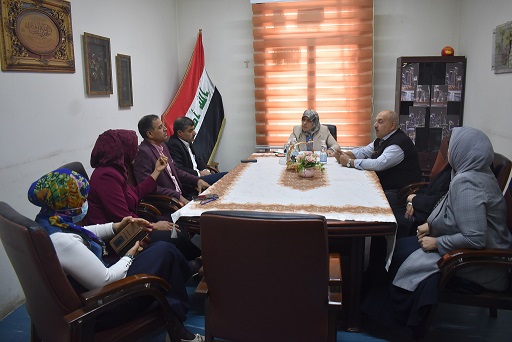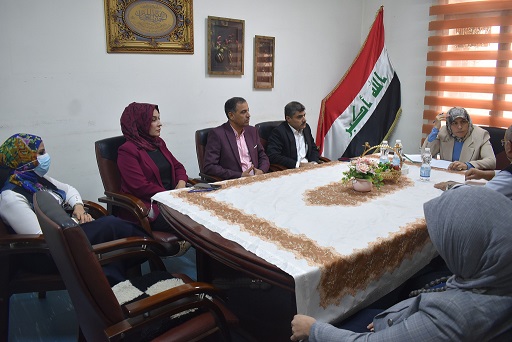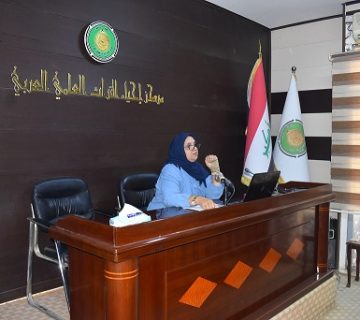
seminar polina Hasson and her role in women’s renaissance
The center of heritage revival organizes seminar polina Hasson and her role in women’s renaissance

The center of heritage revival organizes seminar polina Hasson and her role in women’s renaissance
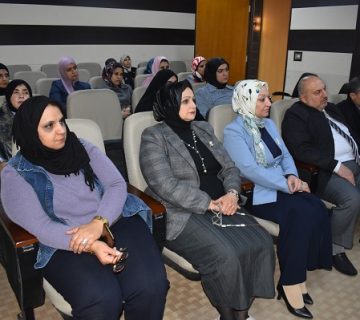
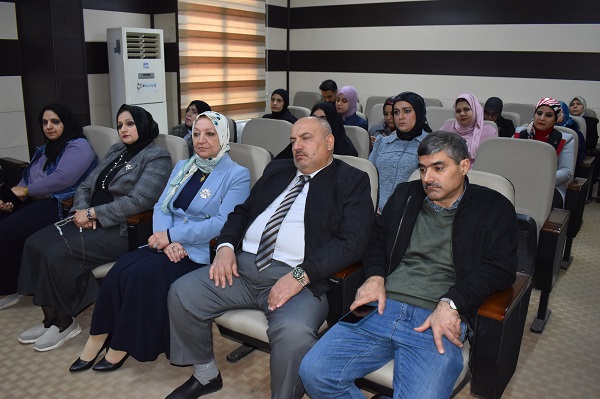
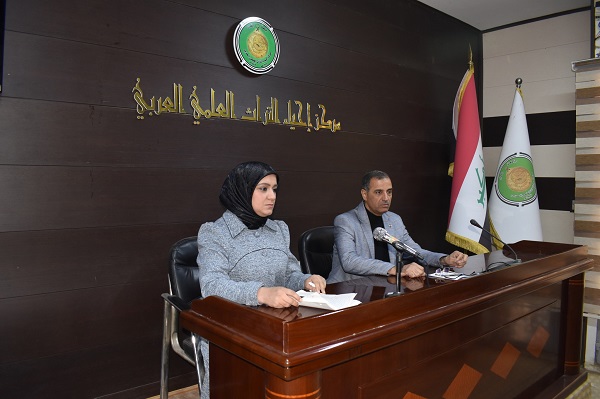
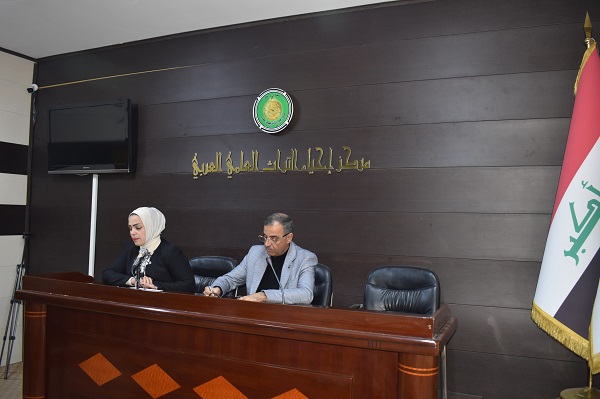
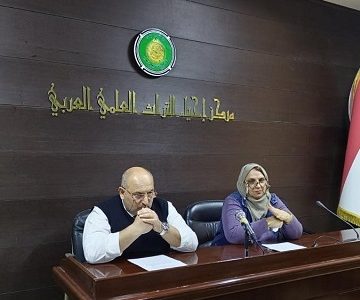
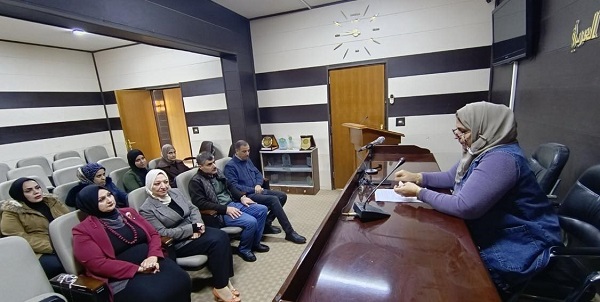
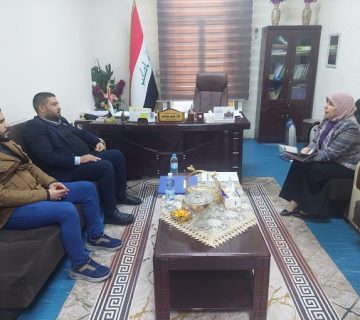
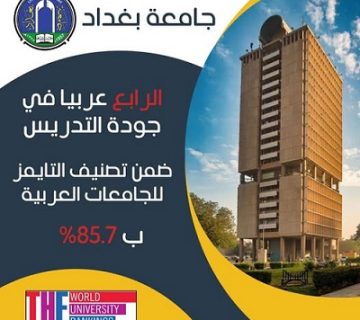
The University of Baghdad has achieved a new achievement by ranking fourth in the teaching pillar of the Times Higher Education Arab University Rankings 2024, outperforming 238 universities from 16 countries. This achievement reflects the university's ongoing efforts to improve the quality of education, as teaching standards are based on indicators such as teaching reputation and faculty-to-student ratios.The percentage of PhD holders and institutional income. The University of Baghdad's fourth-place ranking in the teaching standard in the Times Higher Education Arab University Rankings 2024 represents a significant achievement and confirms the university's commitment to providing the highest standards of quality in teaching and learning. It also reflects the significant efforts made by the mother of universities to improve the quality of education in Iraq.
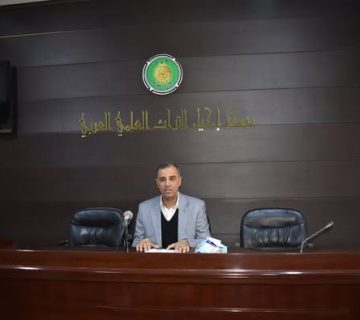
Under the supervision of prof . Dr. Alaa Nafea Jasim (the director of the center of heritage revival ) , the center organizes seminar entitled (Correct and incorrect beginning in reading holy Quran) where sited in the hall of Nabila A. Dawood in the center on Thursday 23rd/1/2025 by presenting numbers of researchers , the lecture is presented by prof. Dr. Taha Sabti Ibraheem who talks about the correction beginning ,it is that the reader begins with a verse that is not related to what precedes it in wording or meaning, and it has many types, such as beginning with the beginning of the surah and beginning with a verse that allows for a new context. As for the incorrect beginning, it is that the reader begins with a verse that is related to what precedes it in wording or meaning, and it also has many types, including beginning with a verse that contains a pronoun that refers to what precedes it, beginning with a verse that contains a demonstrative pronoun for what precedes it, and beginning with a verse that occurs in a story. Therefore, the reader must choose to begin with a verse that is not related to what precedes it in wording or meaning. The lecturer emphasized the issue of stopping and starting, and there must be great care on the part of students, researchers, and readers. Despite all these great efforts and extreme care, we do not find a special section explaining specific controls that would be a law and a general method for the reader that would prevent him from making mistakes and errors that he makes when he begins to read the Holy Quran.
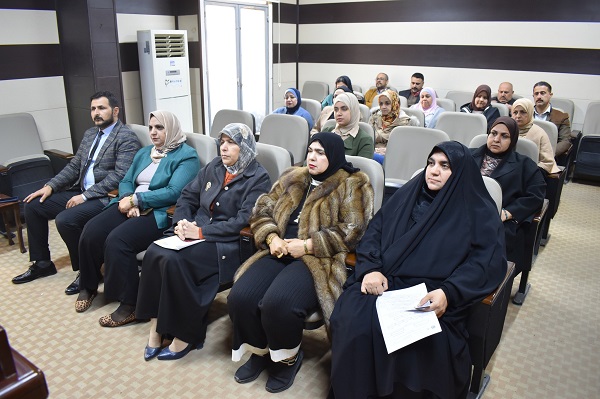
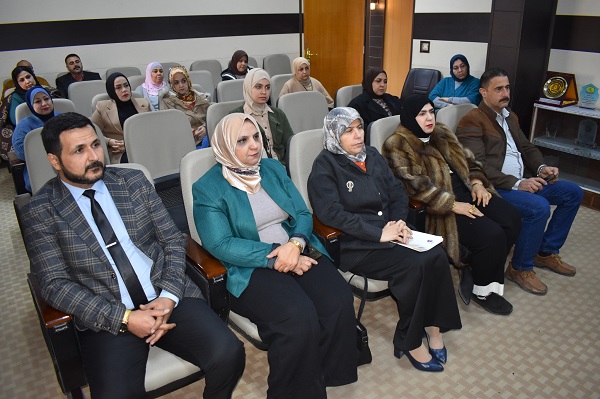
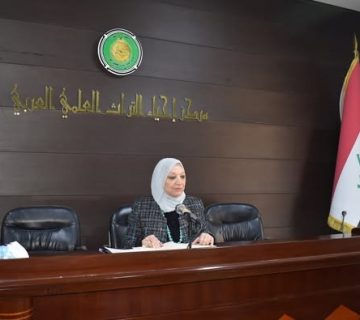
The center of heritage revival organizes seminar entitled (the project of historical museum in Arabic medicine) where sited in the hall of Nabila A. Dawood in the center that is on Tuesday 21st/1/2025 , the lecture is presented by prof. Dr. Alaa Nafea jasim who talks about the profect that aims to the need of the center of heritage revival to heritage museum where appears the development of Arabic medicine equals with other heritage institutes in the world This project was created by the late physician, Professor Adel Mohammed Al-Bakri, in 1986 and was considered one of the important projects at that time, with the aim of displaying the aspects of scientific progress among the Arabs and the prosperity of Arab medicine in the era of Arab civilization, and to be a center for scientific research for those interested in Arab medical heritage and the history of science in general, especially medical and pharmacy students and orientalists. This reflects the image of the activity of the Center for the Revival of Arab Scientific Heritage during the years since its establishment and highlights its effectiveness in the form of continuous achievement and not in a seasonal manner such as seminars and lectures. She also confirmed Al-Bakri’s statement that this project needs a building and employees in addition to furniture and glass cabinets to maintain the exhibits and to direct an appeal in newspapers and on television to scientific bodies and citizens who have old medical tools such as glass or copper utensils or old machines that were used in the medical field and to arrange them according to their use in diseases and to buy what they can buy of these equipment, knowing that most of them are found in old homes.
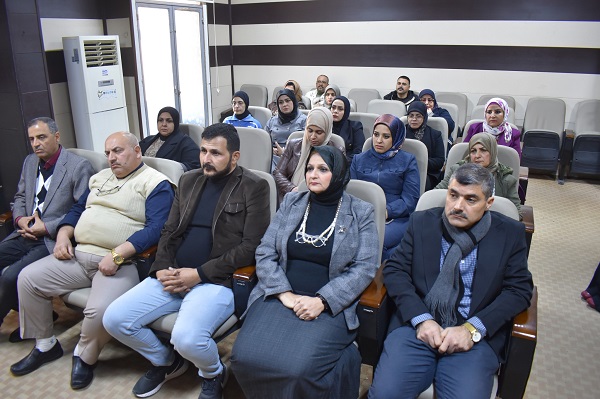
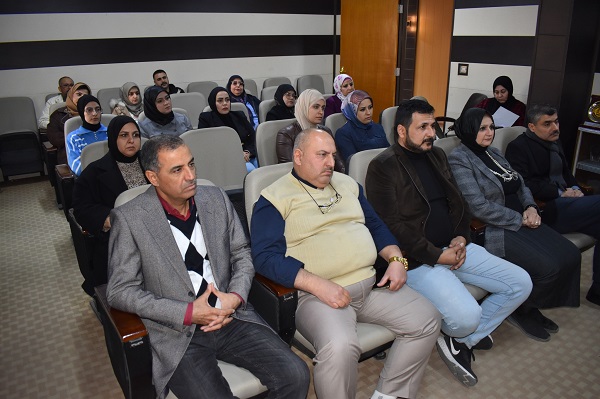
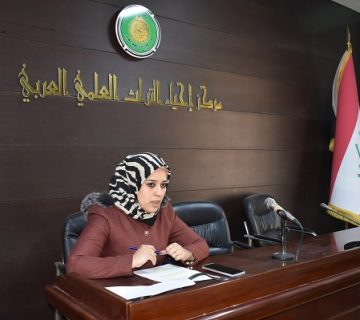
The center of heritage revival organizes seminar ( the development conception of geographical region)
The center of heritage revival organizes seminar entitled ( the development conception of geographic region) where sited in the Nabila A. Dawood hall in the center with presence by numbers of professors , the lecture is presented by assist. Instructor Walaa Dhiaa nisayf (one of the center’s members) who talks about that the region is an important instrument in geography as it taught the date exactly In light of the time period, because people live things happen within a specific time frame, geography should also study the world in light of specific areas within which things are linked to its core. Nassif also added that studying the character of the region is one of the most difficult concepts in geography, as it requires in-depth studies and analysis of natural and human relations, and no geographer can reach this stage unless he has historical and geographical knowledge of the components of the region, and has a keen insight into the relations, in other words, the geographer must be well-informed. In conclusion, the director of the center thanked the lecturer, wishing continued success
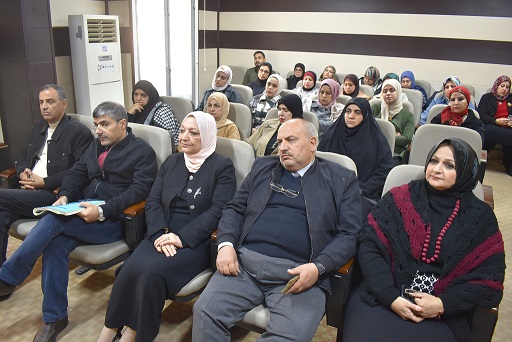
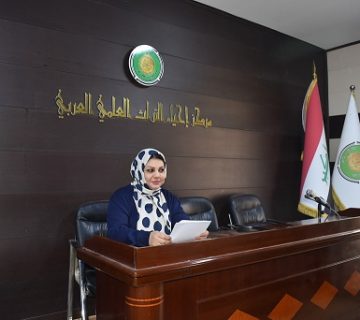
The center of heritage revival organizes seminar entitled(the scientific role of Al-Ahmadiya mosque and school )
The center of heritage revival organizes seminar entitled (the scientific role of Al-Ahmadiya mosque and school) in the hall of Nabila A. Munam in the center on Monday 16th/12/2024 , the lecture is presented by Dr.Leqaa Amer Ashutr (one of the center members) who talks about the importance of historical mosque in Baghdad, which dates back to the Ottoman period,where is located on the side of Al-Rusafa, near the Al-Maidan , and is also known as the Al-Maidan Mosque. The Ottoman governor of Baghdad, Ahmed Pasha, who was the deputy of the governor, Suleiman Pasha the Great, ordered its construction. Ahmed Pasha commissioned the most skilled architects and masters to build it during his lifetime, but he did not witness its opening on an area of 2,600 square meters. His brother Abdullah Bey completed the mosque’s construction about a year later (1796 AD). A two-storey school was attached to it, as well as a library containing rare books and manuscripts. The school continued to provide its scientific services until the mid-fifties of the twentieth century. The most famous scholars in Baghdad studied and graduated from it, including Sheikh Abdul Aziz bin Ahmed Al-Shawwaf (d. 1851 AD), Sheikh Ghulam Rasool Al-Hindi (d. 1912 AD), Yahya Al-Watri (d. 1923 AD), Sheikh Abdul Wahhab Al-Naib (d. 1926 AD), and Munir Al-Watari (d. 1947 AD). It was renewed several times, and the first to renew it was the eight governor, Dawoud Pasha, in the year (1893 AD). Its renewal continued for five years and was completed in the year (1976 AD). The last renewal was carried out by the Sunni Endowment in the year (2010 AD)

The library of revival of Arabian science heritage visited Dr. Ahmad Alhasnawy (the chief of manuscript in Iraqi scientific collective on Thursday 28th/11/2024 , His visit was to present a map of the world of Al-Idrisi as a gift to the center’s library. This is part of the cooperation mechanism between our center and the Iraqi Scientific Academy. At the end of the visit, the director of the center thanked Al-Hasnawi for his visit, wishing him continued success and more future cooperation
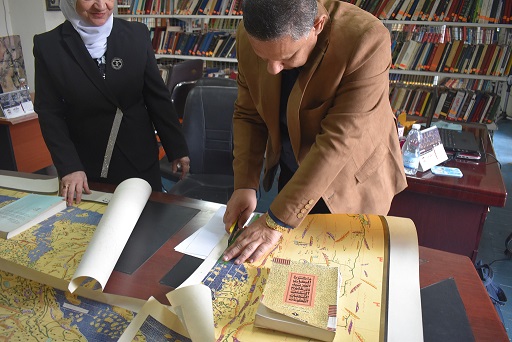
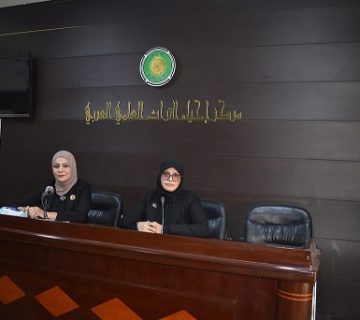
Under the supervision by prof. Dr. Alaa Nafea Jasim , the center organizes workshop entitled ( the famous Arabs and their effect in Arabic Renaissance era , the lecture is presented by prof. Dr. nadia Gathban Mohammad (one of the lecturers in Iraqi scientific collective ) The researcher discussed the Renaissance from a linguistic, historical and philosophical perspective since its inception in Europe and the extension of its impact to Arab countries due to the European occupation. She then talked about the most important representations of this Renaissance in Iraq, its fields and the influential names that contributed to shaping the map of cultural, political, social and artistic awareness. She also showed that the Renaissance is a continuous state between the past and the present because it is linked to the way of thinking. This does not mean that critical thinking should not be practiced on it, but rather it is a necessity to review to measure its impact, especially in what was produced by newspapers and magazines that dealt with the daily life of Iraqi society and its situation with the establishment of the concept of the modern state. The researcher touched on the importance of institutions in supporting the intellectual renaissance in Iraq. Among the most prominent of these institutions is the Scientific Institute founded by Thabet Abdel Nour in the 1920s and the Iraqi Scientific Academy, which included great names, some of whom are involved between the Center for the Revival of Arab Scientific Heritage and the Academy, such as Dr. Taha Baqir, who founded an Iraqi archaeological school with its own features, and Professor Dr. Saleh Ahmed Al-Ali, who established a method for reading Arab history. She touched on the legal renaissance at the hands of the head of the Iraqi Scientific Academy, Professor Munir Al-Qadi, and his impact on the formulation of civil law in Iraq. As for the field of artistic renewal, we find Jawad Salim, who was able to draw inspiration from what is historical and local to bring it to the global scene. In conclusion, the director of the center thanked the lecturer, wishing her continued success.
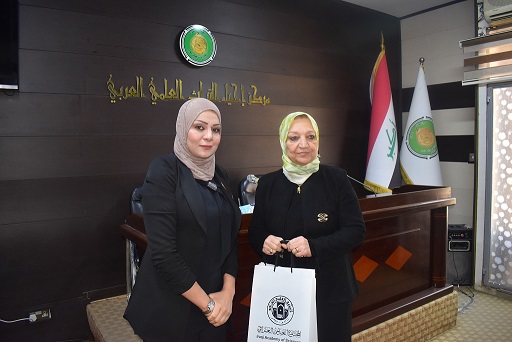
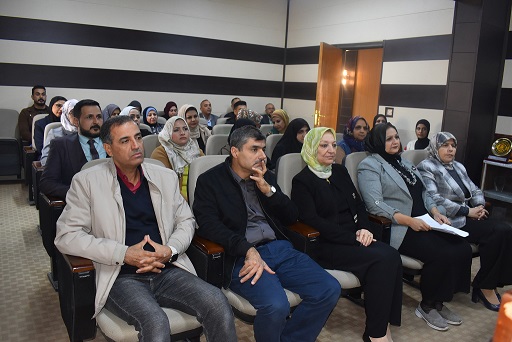
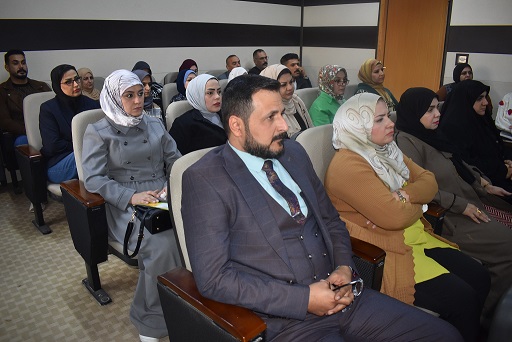
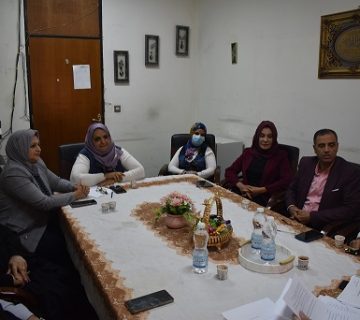
The Secretariat of the Council (Heads of Departments) at the Center for the Revival of Arab Scientific Heritage / University of Baghdad organized a scientific meeting on Monday evening, 11/25/2024, at exactly one o’clock in the afternoon, to discuss the mechanism of holding the Sixth International Scientific Conference (History of Science among the Arabs) in terms of discussing the research submitted to the conference and reviewing it by the Scientific Expert Committee, as it included all humanities and pure sciences specializations and amounted to approximately 42 research papers. The research covered all modern axes such as electronic technologies and artificial intelligence in an attempt to benefit from them and employ them in serving the heritage.
